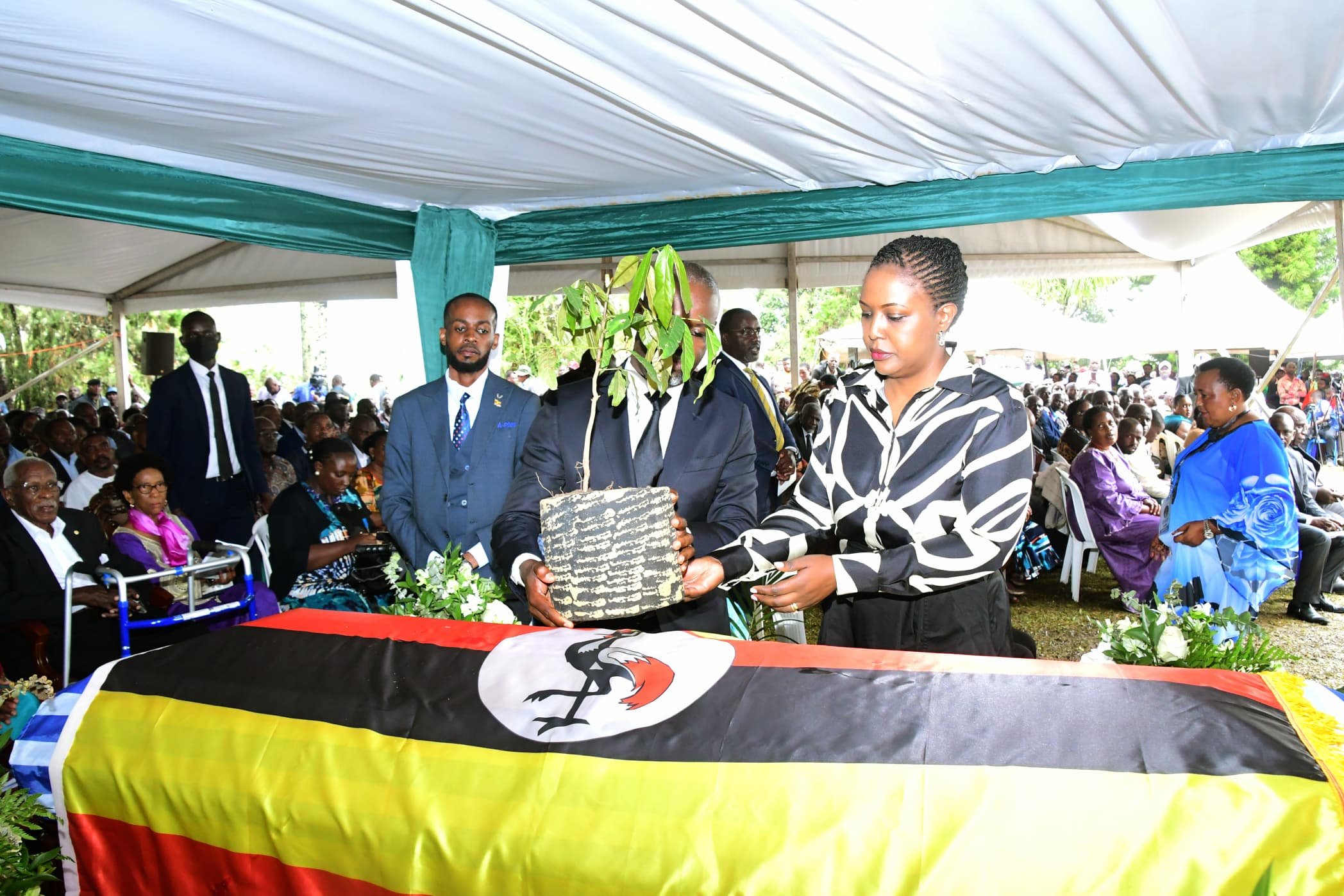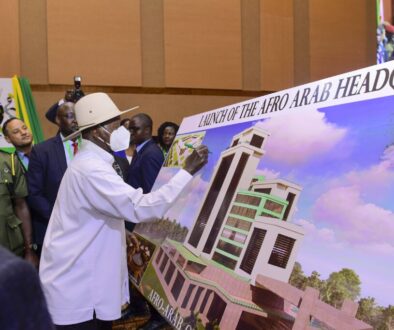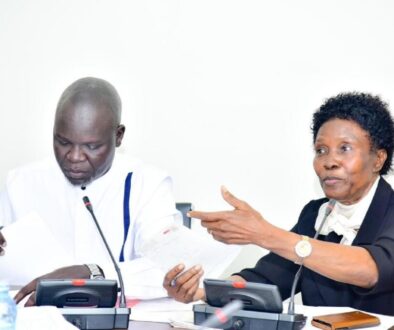Tayebwa, Muntu clash at James Garuga’ burial

CAPTION: Deputy Speaker Thomas Tayebwa (C) with his wife lay a tree on the casket renowned businessman James Musinguzi Garuga on Monday August 12th 2025.
By Our reporter
KANUNGU – A bitter exchange over Uganda’s tea industry erupted at the burial of renowned businessman James Musinguzi Garuga on Monday evening in Mukiragiro village, Nyarurambi parish, Rugyeyo sub-county, Kanungu District.
The clash pitted Deputy Speaker Thomas Tayebwa against Gregory Mugisha Muntu, the president of the Alliance for National Transformation (ANT). Muntu accused the government of suffocating the tea project in which Garuga had invested heavily, employing many people. In response, Tayebwa dismissed the claims, insisting the government had instead partnered with Garuga to establish tea factories in Kigezi.
Sam Kajojo Arineitwe said the government’s failure to pay 70 billion shillings to tea nursery bed farmers had left about 1,000 farmers in financial crisis, alleging the delay was influenced by a jealous political leader. He added that tea leaf prices had dropped from 550 shillings to 250 shillings per kilogram.
Kajojo further claimed Garuga died unhappy following the closure of some programs on his Kanungu Broadcasting Services (KBS) radio, which had been suspended by the Uganda Communications Commission (UCC) for unclear reasons.
At the burial, Tayebwa maintained that tea price fluctuations were not the government’s fault, noting President Yoweri Museveni was in the process of meeting disgruntled tea nursery bed farmers from Kigezi and Ankole to discuss the unpaid money.
He later read Museveni’s eulogy, in which the President praised Garuga for his patriotism, agricultural investments, and focus on development beyond political affiliations. Museveni also gave 20 million shillings in condolence cash to the family, while the NRM party contributed an additional 5 million shillings.
A casket containing Garuga’s remains was lowered to the grave at exactly 6:30 p.m. He succumbed to cancer on August 5, 2025, at Nakasero Hospital in Kampala, as his family prepared to fly him to Turkey for specialised treatment.
Preaching at the burial, Rt Rev. Onesmus Asiimwe, Bishop of North Kigezi Diocese, and Rt Rev. Dan Zoreka, Bishop of Kinkiizi Diocese, described Garuga as a seasoned businessman and philanthropist who stood up for the weak and marginalised.
Amanya Nuwe Mushega, former secretary general of the East African Community (EAC), urged Ugandans to emulate Garuga by investing their money in areas that address people’s needs. Proscovia Salaamu Musumba, Front for Freedom (PFF) Party activist, delivered a eulogy from imprisoned Colonel Dr. Kiiza Besigye to the family.
After the family insisted it be read aloud, sections of mourners shouted demands to free Besigye.Besigye hailed Garuga for reviving Uganda’s tea industry and for his role in the struggle against bad governance and nepotism.
Dr. Peace Garga, Garuga’s widow, criticised Tayebwa’s claim that the government had funded the tea factories, clarifying that Garuga had established them through personal bank loans.
She also revealed he was denied a UK visa in June 2025 for specialised treatment, and by the time it was granted, the doctor was on official leave. She called for the establishment of a Ugandan hospital with capabilities equal to top facilities abroad.
Born on December 16, 1953, in Kihihi, Kanungu District, Garuga attended Kinkiizi Primary School, Mbarara High School, Makerere College School, and Makerere University, where he earned a Bachelor of Commerce and later studied law.
He worked at Rayon Textiles Limited and Shell Uganda before returning to Makerere for an LLB in 1980.In 2001, he contested for the Kinkiizi West parliamentary seat against then-Defence Minister Amama Mbabazi, but after a disputed election and a court-ordered rerun, he chose not to participate. A founding member of the FDC, Garuga was a strong advocate for democracy and good governance.
He is best remembered for his contribution to the tea industry through the Kigezi Highland Tea Factories, which supported thousands of farmers. He is survived by his wife Dr. Peace Musinguzi, four children, and seven grandchildren.


